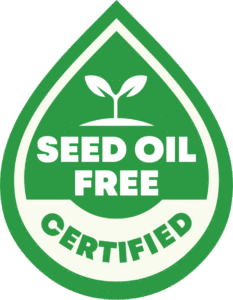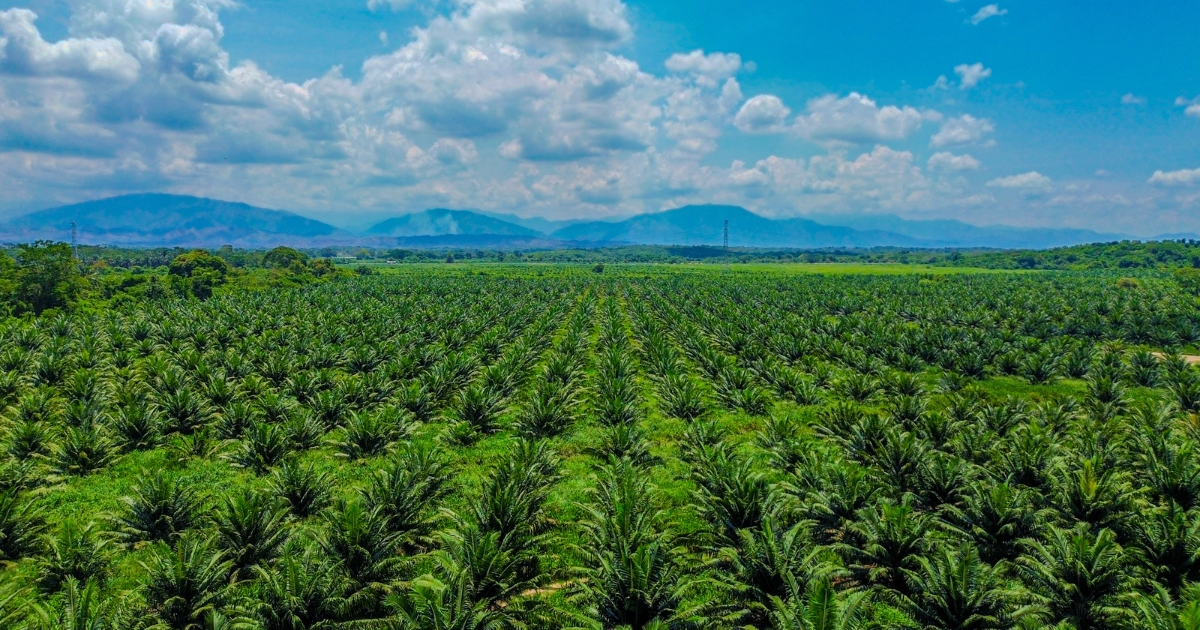Navigating the “Seed Oil Free” Market Shift

The demand for ingredient transparency is no longer a niche trend—it is a permanent market shift.
For CPG brands, this presents a critical challenge: meeting consumer calls for product purity while also providing undeniable proof of ethical sourcing. Widespread issues like oil adulteration and misleading labels have put consumer trust at risk, making your choice of a seed oil free ingredient more important than ever.
You need a scalable, functional ingredient that solves both problems at once. DAABON’s sustainable palm oil provides this verified trust, as it is the first palm oil to be awarded the Seed Oil Free Certified™ seal alongside premier sustainability accreditations like Regenerative Organic Certified® Gold.
Why is the Seed Oil Free Shift a Business Imperative?
It’s Not Just About Health—It’s About Brand Trust
The movement away from seed oils is driven by growing consumer awareness of health concerns, from imbalanced omega-6 fats to chemical instability under heat. But for CPG brands, the most critical issue is trust.
Widespread fraud has shattered consumer confidence. Without third-party verification, your products are exposed to this risk, potentially eroding the trust you’ve spent years building.
This market shift is validated by clear data you cannot ignore:
- 28% of Americans now actively avoid seed oils.
- Certified seed oil free products are seeing triple-digit year-over-year sales growth, proving a profitable demand for brands that offer verified transparency.
Manufacturing Dilemma: Sourcing a Seed Oil Replacement
Functionality, Scale, and the “Palm Oil Paradox”
Seed oils such as soybean, sunflower, and canola contain high levels of polyunsaturated fats that break down quickly when exposed to deep-frying or commercial baking temperatures. This degradation generates lipid peroxides, aldehydes, and other reactive compounds that shorten fry life, alter flavor, and create food safety concerns.
Finding a viable replacement for seed oils presents a significant operational challenge for food manufacturers and foodservice operators, who need frying and baking fats that perform consistently under high heat. Any alternative fat must deliver on three non-negotiable requirements:
- Functional Versatility: It must perform reliably across a range of applications, from baking to frying.
- Guaranteed Stability: It needs to be highly stable to ensure a long and reliable shelf life for your products.
- Supply Chain Scalability: It must be available in sufficient quantities to meet your production demands without interruption.
This challenge often leads manufacturers to the “Palm Oil Paradox.” While conventional palm oil meets these functional needs, many brands hesitate due to its historical association with deforestation and unfair labor practices in Southeast Asia. For a brand moving away from seed oils, switching to an uncertified palm oil from these regions simply trades one consumer concern for another. This is why a new model, like the sustainable palm oil from Colombia, pioneered by DAABON, is essential.
Health Risks of Oil Breakdown
The chemistry of heat-induced degradation of refined seed oils and hydrogenated fats is well documented. Lipid peroxides promote oxidative stress inside the body, while aldehydes are linked to cardiovascular disease, neurodegenerative disorders, and certain cancers. Repeated exposure to fried foods compounds these risks. For food brands, the choice of frying or baking oil directly affects both product quality and consumer well-being.
Palm Oil’s Natural Stability
Palm oil offers a different fatty-acid structure that resists oxidation. Roughly 50 percent saturated, 40 percent monounsaturated, and only 10 percent polyunsaturated, it maintains stability during extended high-temperature use. Research shows that palm olein, the liquid fraction of palm fruit oil, produces significantly fewer harmful byproducts than common seed oils when subjected to repeated frying cycles. The result is longer fry life, cleaner flavor, and improved consistency in finished products.
Palm oil delivers the solid fat properties needed for baked goods and prepared foods without partial hydrogenation. That means manufacturers achieve texture and mouthfeel targets without creating trans fats. Palm kernel oil, a co-product of the same fruit, contributes medium-chain triglycerides (MCTs) valuable in specialty foods and personal-care applications.

A vast, sustainable DAABON palm oil plantation in Colombia, the source of a trusted seed oil free ingredient.
Verified Seed Oil Free
Daabon’s Seed Oil Free CertifiedⓇ sustainable palm oil products undergo independent lab testing to verify that they are pure and contain no seed oils. This third-party assurance supports transparent labeling and simplifies regulatory compliance for brands responding to heightened consumer scrutiny. DAABON combines functional superiority with a dual-verification system that eliminates reputational risk and establishes trust:
- Purity Guaranteed By The Seed Oil Free Alliance
As the first palm oil producer to earn the Seed Oil Free CertifiedⓇ seal, our products undergo independent lab testing to guarantee purity. This completely removes the supply chain risk of adulteration and ensures the integrity of your “seed-oil-free” claim. - Solving The “Palm Oil Paradox” with Ethical, Sustainable Supply
Daabon controls every step of production, from organic cultivation through processing and global distribution, ensuring traceability and long-term supply security. A portfolio of sustainability credentials, including Regenerative Organic Certification (Gold), RSPO, Fair Trade, and Non-GMO Project Verified, provides verifiable proof of our commitment to responsible sourcing, environmental regeneration, and social fairness, allowing you to choose palm oil with complete confidence.
A Proven Alternative to Seed Oils
For manufacturers seeking to replace unstable seed oils, Daabon delivers a dependable solution: Seed Oil Free CertifiedⓇ palm oil with exceptional high-heat stability and available at commercial scale through a vertically integrated supply chain.
For leaders in R&D, procurement, and brand management, this combination provides the complete confidence needed to innovate safely. Partner with the supplier that delivers multi-layered, verifiable trust.
Contact DAABON today to request a sample and discuss your formulation needs.
